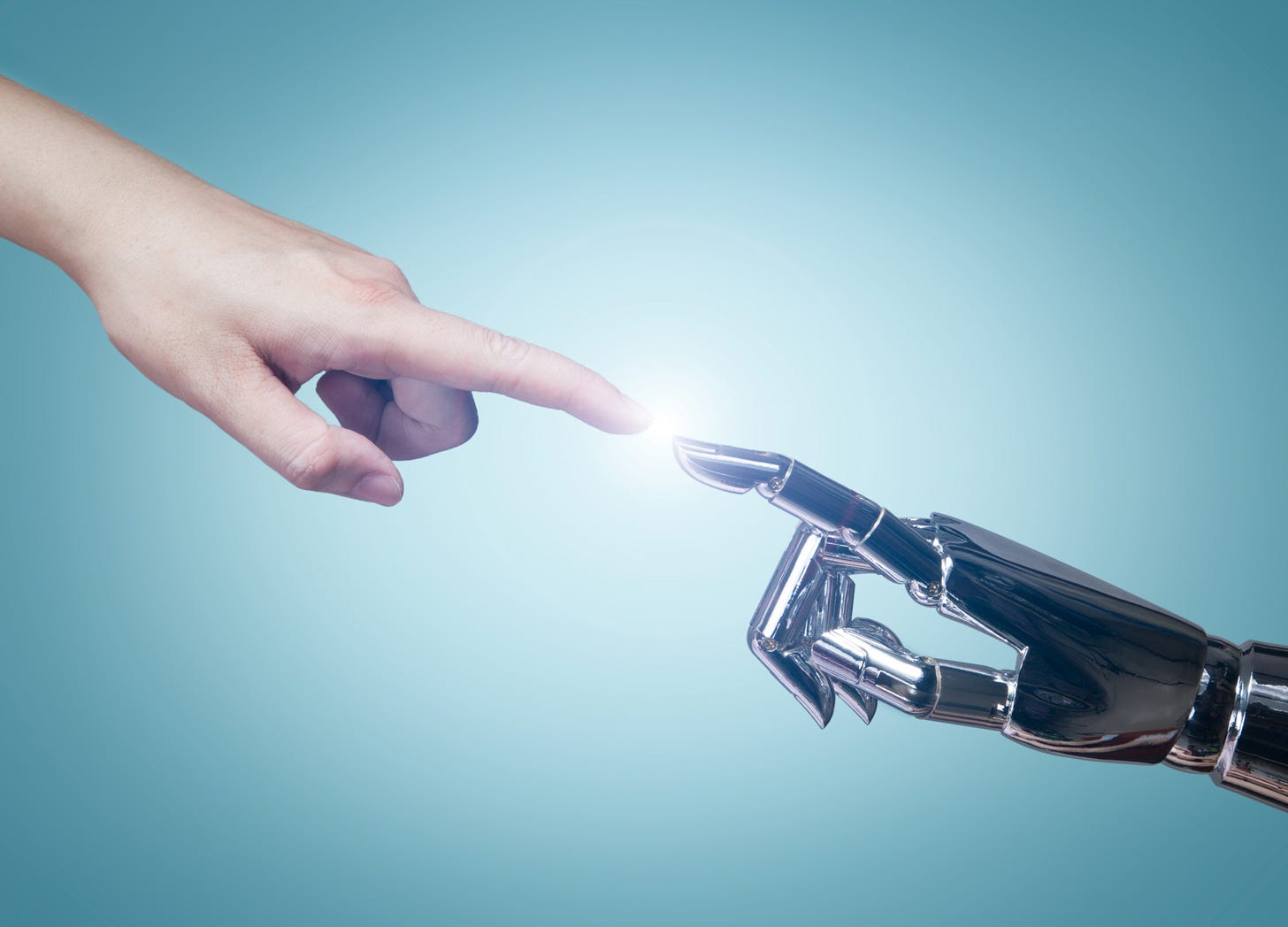AI doesn't care if you're for or against it, neither should you
AI is not only a technical, creative, or educational issue. It's all of those things and many more, so we need to discuss it better. Here's two great tips for doing just that.
New technology always worries people. Socrates thought writing would damage our memory. Conrad Gessner, a Swiss biologist, didn't trust the printing press because he thought it would overload us with information. When the first trains arrived, people feared that going too fast would suffocate them. There was fear that radios would distract kids from schoolwork and cause nightmares. When the internet came, some reports claimed emails were worse for our IQ than smoking weed.
Looking back, previous generations’ technology scares often seem silly. But these technologies were brand new, unknown, and hard to understand back then. This teaches us something important about how to face the new and unfamiliar. If we learn from history, we might even handle new things in our own time a bit more levelheadedly. Unfortunately, levelheadedness is not in vogue.
These days, everyone is talking about AI. There’s so much being said, so many views thrown around. Still, I don’t think AI is being discussed very well. Many people seem to base all their thoughts on AI on Elon Musk’s latest … hmmm … Tweet? X? God knows what it’s called these days. That’s not very helpful. Whatever Musk says is always what’s best for Musk. If you want to know what could benefit the rest of us, you need to look elsewhere.
AI is not only a technical issue, a creative issue, or something that will affect our education and working life. It is all of those things and many more. AI raises new philosophical, ethical, and religious questions. It forces us to delve into unchartered psychological depths. AI is changing everything, so we cannot only hone in on one aspect at a time. We must also look at it holistically - which, in a sense, is just a fancy word for everything everywhere all at once - like the film.
Nor must we fall into the trap of thinking about AI as something we are “for” or “against”. That’s like saying you’re for or against the weather. It’s there whether you want it or not. AI is, too. It’s already part of your everyday life and is here to stay. There will be challenges, but there are also endless possibilities. The best we can do is to prepare for the challenges and open ourselves up to the many possibilities.
In this newsletter, I’ll be sniffing out AI from various angles. I say 'sniff' because I like to imagine myself going over the issue like an eager, wet dog nose. After all, it’s a great way of scoping out the neighbourhood, so to speak. I will get back to AI, but today, I only want you to consider these two things:
Anyone jumping into the AI debate should first take the time to read Jeanette Winterson's collection of essays 12 Bytes: How We Got Here. Where We Might Go Next. She bravely and curiously investigates AI from a historical, philosophical, technical, creative, religious, political, and human perspective. You can find Winterson's TED talk on this below. Laura Spinney also wrote a great article in The Guardian about the book when it was published.
We need to end all the lazy pop culture references to the Terminator franchise in the AI debate once and for all. Every time someone says: 'It will be like in The Terminator!' I get confused and am flung to and fro between hope and despair. Are they referring to the robots trying to annihilate humanity or those trying to save it? Or do they mean there's an ever-so-tiny chance that I'll one day be as fit as Linda Hamilton? If they mean the latter, I’m all in, but you see the greater problem? There’s no end to the possible interpretations, which makes all sloppy references to the franchise practically useless.


